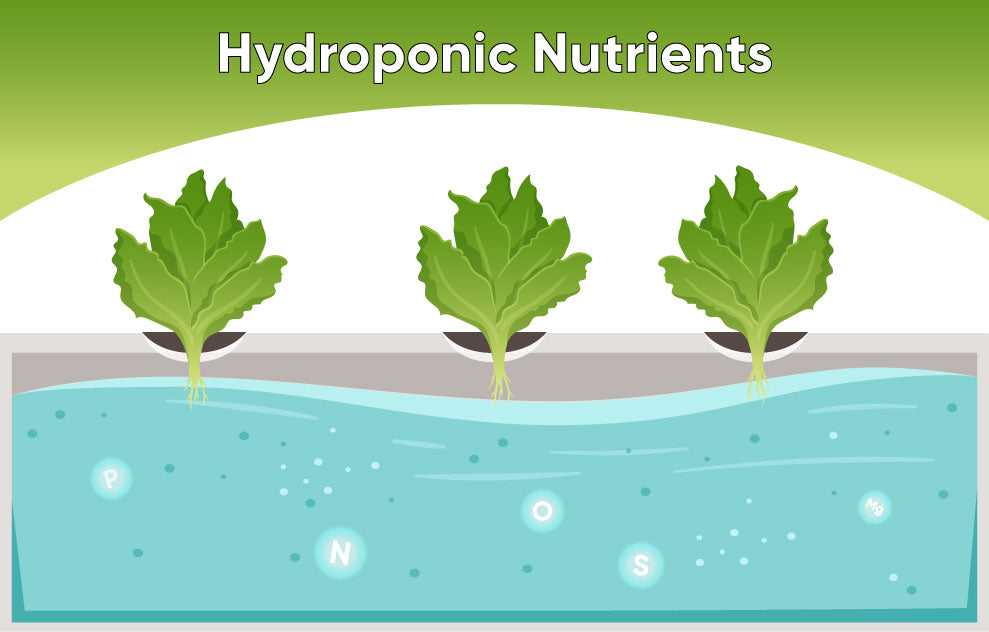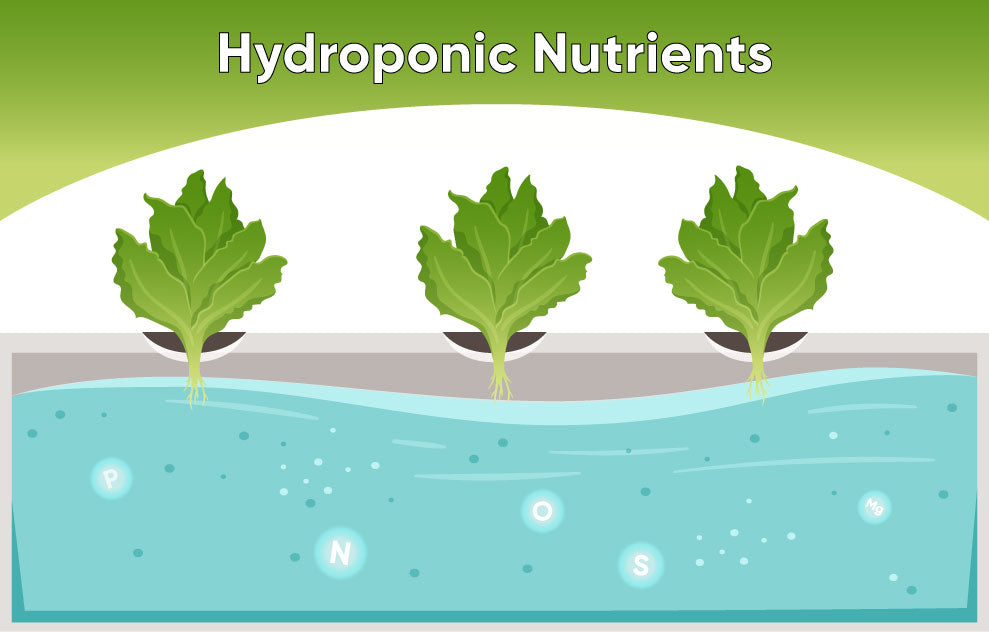
Three Things to Know About Hydroponic Nutrients
Share
 Hydroponics is an alternative farming system that grows plants in water instead of soil. To grow certain plants, growers also use alternative media such as coconut fiber, asbestos, and cocoa. But once the seedlings are large enough, they can be transferred into a hydroponic system with water and nutrients. Below, we cover three things you should know about hydroponic nutrients.
Hydroponics is an alternative farming system that grows plants in water instead of soil. To grow certain plants, growers also use alternative media such as coconut fiber, asbestos, and cocoa. But once the seedlings are large enough, they can be transferred into a hydroponic system with water and nutrients. Below, we cover three things you should know about hydroponic nutrients.
I. Organic Nutrients and Plant Boosters
Hydroponic plant growth requires organic nutrients and plant enhancers.
1. Organic Nutrients: These consist of ingredients used in organic gardening and are required for plant growth. They should be free of sediment-forming substances since heavy particles cannot be absorbed by plants and can even clog the hydroponic system.
2. Plant boosters: These are relatively new on the market and help plants absorb nutrients that are injected into the water, which improves overall plant growth. Certain hydroponic nutrients are commercially available to further accelerate plant flowering. These premium mixes should not be used unless you have a sizable garden. Technically, high-end plant organic hydroponic nutrients should only be used under expert guidance.
II. Micronutrients vs. Macronutrients
All hydroponic plants require a mix of micro and macronutrients. Macronutrients are the foundation of plant nutrition and need to be supplemented throughout the year. Examples of macronutrients include oxygen, nitrogen, magnesium, phosphorus, potassium, hydrogen, sulfur and calcium.
On the other hand, micronutrients are called trace elements, and only required on occasion in smaller quantities. Micronutrients include iron, cobalt, molybdenum, nickel, manganese, chlorine, silicon, sodium and zinc.
III.Pre-Mixed Nutrients
Some hydroponic systems like abby come with pre-mixed nutrients for easy application. In general, fully automatic hydroponic systems are readily available in stores and online. Just make sure to purchase from a credible retail store and ensure that the device comes with clear instructions for how to add nutrients. Systematic feeding is crucial so that hydroponic plants can fully absorb nutrients and grow properly. This means you should avoid changing types and brands frequently so as not to harm your plant growth.
